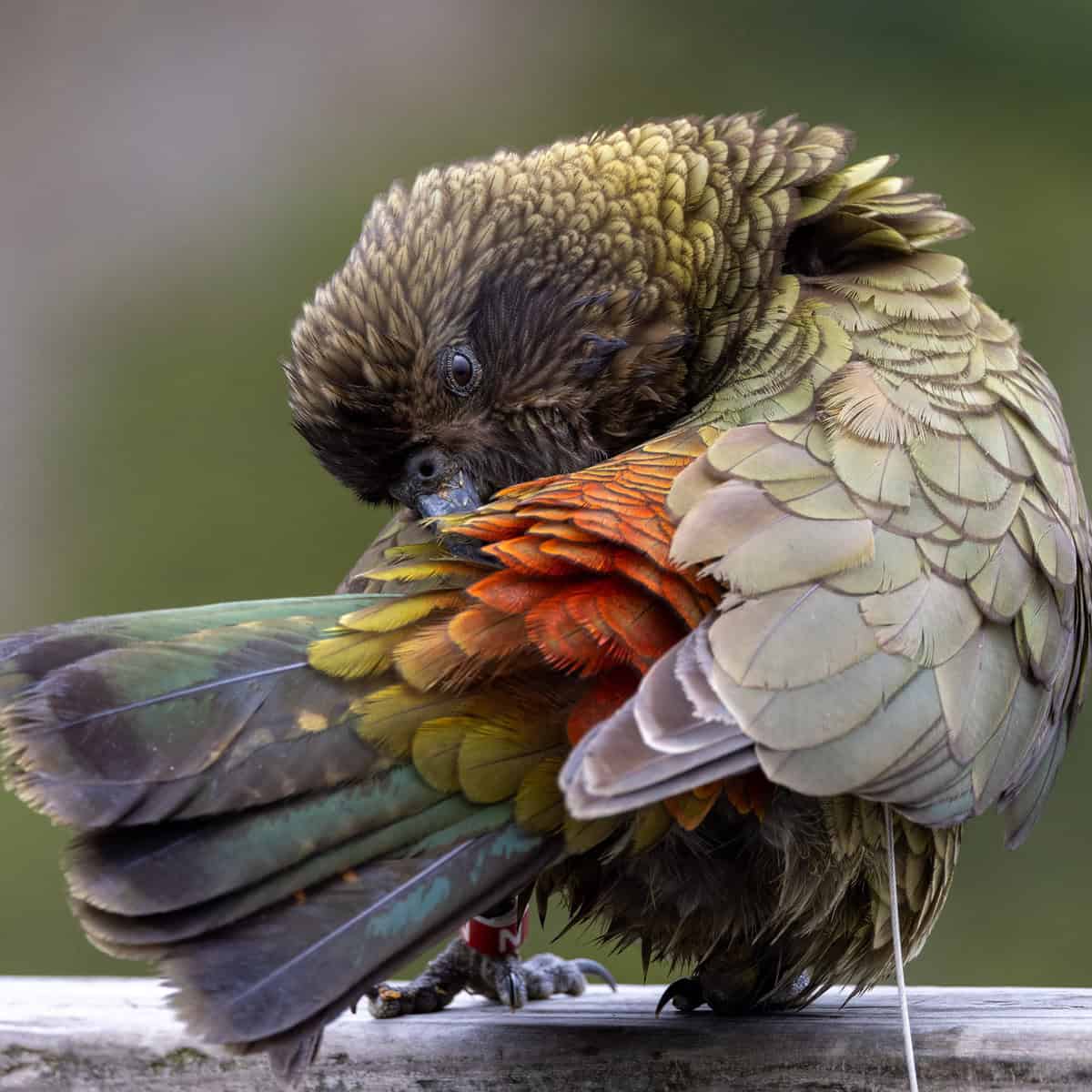Last Updated on by Mitch Rezman
Introduction
- Overview of parrot behavior and the significance of sleep
- The role of sleep in a parrot’s overall health
- Purpose of the article
The Importance of Sleep for Parrots: Creating the Perfect Sleep Environment
Just like humans, parrots need a good night’s sleep to maintain their health and well-being.
In the wild, parrots follow a natural sleep cycle that aligns with the sunrise and sunset, allowing them to get the rest they need.
However, when living in our homes, these birds often face disruptions that can affect their sleep.
Ensuring that your parrot gets enough quality sleep is crucial for their physical and mental health. In this article, we’ll explore why sleep is so important for parrots and provide tips on how to create the perfect sleep environment for your feathered friend.
Why Sleep is Crucial for Parrots
Sleep plays a vital role in a parrot’s life, influencing everything from their physical health to their mood and behavior. Just like people, parrots need sleep to allow their bodies to repair and rejuvenate.
During sleep, their immune systems strengthen, helping them fend off illnesses.
Additionally, sleep is essential for cognitive function—parrots are highly intelligent creatures, and proper rest helps them learn, remember, and process information effectively.
On the flip side, lack of sleep can lead to a range of problems, including irritability, aggression, and even feather plucking.
A parrot that doesn’t get enough sleep may also be more susceptible to stress, which can exacerbate health issues.
Therefore, ensuring your parrot gets enough sleep is not just about keeping them happy—it’s about keeping them healthy too.
Understanding Parrot Sleep Patterns
Parrots in the wild are early risers and early sleepers, typically going to bed at dusk and waking up at dawn.
Their sleep patterns are heavily influenced by the natural light cycle.
However, in captivity, these patterns can be disrupted by artificial lighting, household noise, and other factors.
Different parrot species have slightly different sleep needs.
For instance, smaller birds like budgies may need up to 12 hours of sleep, while larger parrots like macaws might do well with 10 to 12 hours. Understanding your specific bird’s needs is crucial to providing the right amount of rest.
Signs of sleep deprivation in parrots include
- Increased irritability or aggression
- Unusual quietness or lethargy
- Feather plucking or other signs of stress
Recognizing these signs early can help you make the necessary adjustments to improve your bird’s sleep quality.
The Ideal Sleep Environment
Creating the perfect sleep environment for your parrot involves several factors, but two of the most important are ensuring the environment is quiet and dark.
Parrots are sensitive to light and noise, both of which can easily disrupt their sleep.
Light: Parrots need a dark environment to sleep well. This means that any light, whether it’s from a streetlight outside or a lamp inside, can interfere with their rest. Covering the cage with a breathable, dark cover is a common practice to block out light and create a cozy, secure feeling for the bird.
Noise: While some parrots can adapt to a certain level of ambient noise, loud or sudden sounds can startle them awake. Placing the cage in a quiet part of your home, away from TVs, kitchens, or other sources of noise, will help minimize disturbances.
Creating a Dark Sleep Space
One of the easiest ways to create a dark sleep space for your parrot is by using a cage cover. Cage covers are simple, effective tools that block out light, making it easier for your parrot to fall and stay asleep.
Tips for using cage covers:
- Choose a cover made of breathable material to ensure proper ventilation
- Cover the cage at the same time each evening to establish a routine
- Ensure the cover doesn’t touch the bird inside the cage, which could cause discomfort
Alternatively, you can place the cage in a room with blackout curtains, which block external light from windows. If a separate room isn’t available, positioning the cage in a corner where it’s less exposed to light sources can also work.
Temperature and Humidity Considerations
Parrots are tropical creatures, and they thrive in warm environments.
However, they also need a comfortable temperature to sleep well. Generally, a temperature range of 65°F to 80°F (18°C to 27°C) is ideal for most parrots. Temperatures below 60°F (16°C) can be too cold, while anything above 85°F (29°C) may be too warm, leading to discomfort.
Humidity is another important factor.
Parrots are used to humid environments, so if your home is too dry, it can affect their comfort and sleep.
Keeping the humidity between 40% and 60% is typically ideal. You can use a humidifier to maintain proper humidity levels, especially in dry climates or during winter months when indoor air tends to be drier.
Minimizing Disruptions During Sleep
To help your parrot get the best possible sleep, it’s important to minimize disruptions during their rest period.
This includes reducing household noise at night and managing interactions with other pets.
Reducing noise: Turn down the volume on TVs, radios, and other electronic devices during your parrot’s sleep time. If your bird is in a room where noise is inevitable, consider moving the cage to a quieter location.
Managing other pets: If you have dogs, cats, or other animals, ensure they don’t disturb your parrot while it’s sleeping. Pets can unintentionally cause stress or even night frights, which are sudden panic episodes that can occur in parrots during the night.
Nighttime security: Close windows and blinds to prevent any sudden lights or sounds from outside that might startle your parrot. If your bird is prone to night frights, a small night light might help, but make sure it’s dim and not too close to the cage.
Routine and Consistency
Parrots thrive on routine, and establishing a consistent sleep schedule is key to ensuring they get enough rest. Try to put your bird to bed at the same time every night and wake them at a similar time each morning.
This consistency helps regulate their internal clock, making it easier for them to fall asleep and stay asleep.
Written by Mitch Rezman and the Windy City Parrot Content Team
Author Profile
Latest entries
 Feeding Exotic BirdsDecember 29, 2025How to Switch or Convert Your Bird From Seeds to Pellets: Real-Life Case Studies and Practical Guidance
Feeding Exotic BirdsDecember 29, 2025How to Switch or Convert Your Bird From Seeds to Pellets: Real-Life Case Studies and Practical Guidance Feeding Exotic BirdsDecember 16, 2025A Practical, Budget-Smart Guide to Feeding Birds Well
Feeding Exotic BirdsDecember 16, 2025A Practical, Budget-Smart Guide to Feeding Birds Well Bird EnviornmentsDecember 7, 2025Understanding Budgie Cage Bar Orientation: Myths, Realities & Practical Solutions for Vertical-Bar Bird Cages
Bird EnviornmentsDecember 7, 2025Understanding Budgie Cage Bar Orientation: Myths, Realities & Practical Solutions for Vertical-Bar Bird Cages Feeding Exotic BirdsDecember 5, 2025How Dr. T.J. Lafeber Rewrote the Future of Pet Bird Nutrition
Feeding Exotic BirdsDecember 5, 2025How Dr. T.J. Lafeber Rewrote the Future of Pet Bird Nutrition



